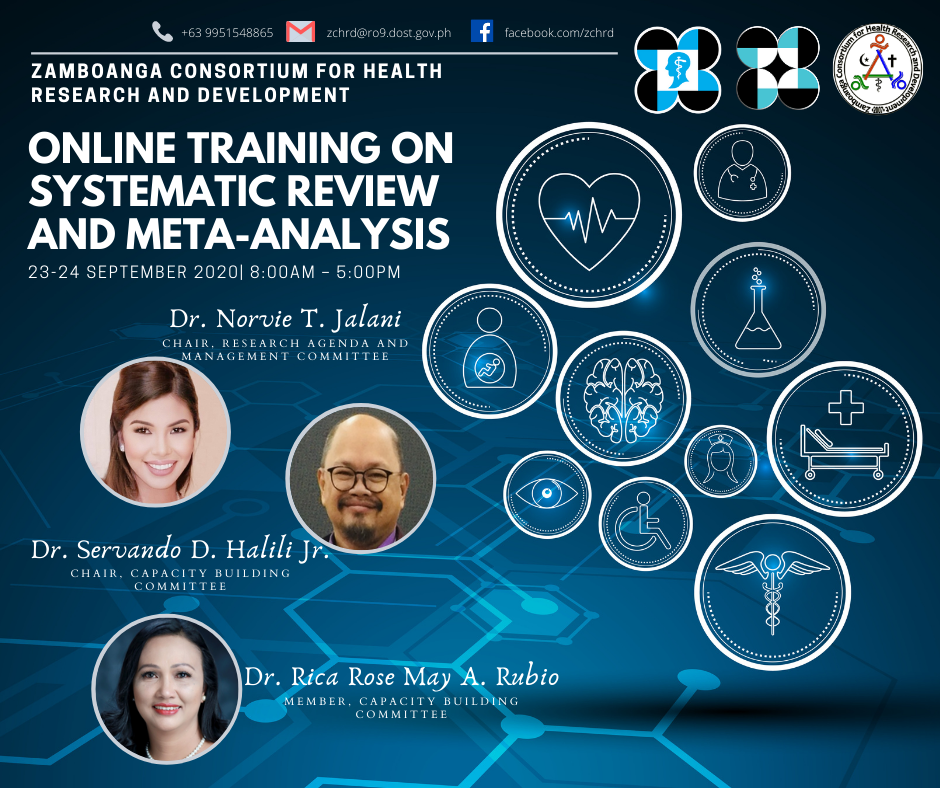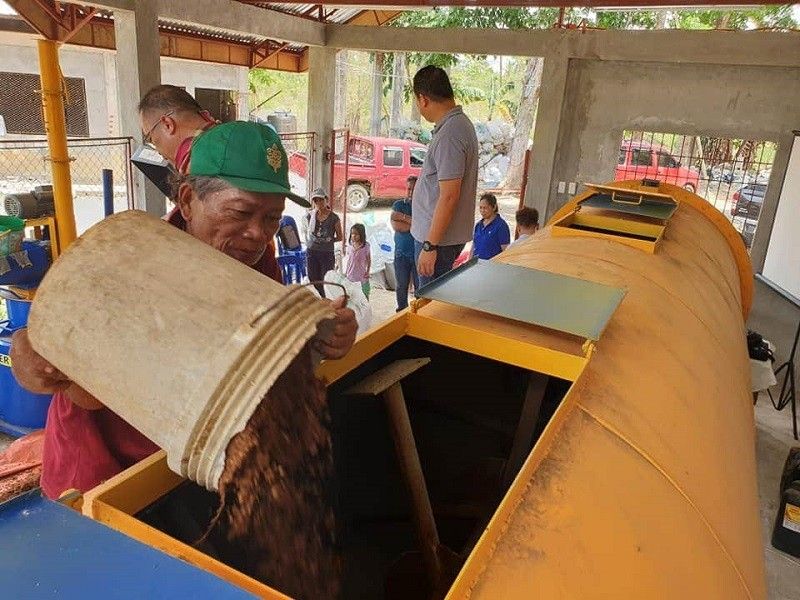The Zamboanga Consortium for Health Research and Development (ZCHRD) will conduct an Online Training on Systematic Review and Meta – Analysis on 23 - 24 September 2020, 8:00AM – 5:00PM via Google Meet/Zoom. This program aims to discuss the basic and important concepts in systematic review and meta-analysis. This 2-day online training is offered for FREE and it is intended for researchers in State Universities and Colleges (SUCs) and Higher Education Institutions (HEIs).
Sidebar
Home
DOST grants 596k on the study of Microplastics in Fishes sold in ZC Market
A researcher in Zamboanga City had recently received a grant worth Five-Hundred Ninety-six Thousand, Eight-Hundred Eighteen Pesos and Fifty centavos (₱596,818.50) to develop studies on the potential health hazards of the different types of microplastics found in the top five (5) most marketed fish in selected wet markets of Zamboanga City.
Leading the study is Dr. Servando D. Halili Jr., a scholar of Fulbright Research Fellowship from 2009 to 2010 in Colorado, USA. The Fulbright Advanced Research and University Lecturing Program, is a scholarship for researchers and professors for the implementation of their own research projects at American Universities, a non-profit research institutes and government institutions. He is a doctorate degree holder of American Culture Studies from Bowling Green State University in 2003, a graduate of Master of Arts in Literature from Ateneo de Manila University in 1994, and a product of Mindanao State University – Marawi with a degree in Education.
Awarded by the Department of Science and Technology – Philippine Council for Health Research and Development (DOST-PCHRD) through the Zamboanga Council for Health Research and Development – Regional Research Fund (ZCHRD-RRF), the funding will be used to further research in determining the types, abundance, and characteristics of microplastics found in the gut and tissue of the fishes.
The grant will be utilized to obtain the necessary provisions, supplies and materials, and chemical reagents for the numerous preparations and test solutions to determine the various microplastics present in the fishes. Microplastics, as defined by the U.S. National Oceanic and Atmospheric Administration (NOAA) are small pieces of plastic that pollute the environment. These plastics are not a specific kind of plastic, but rather any type of plastic fragment that is less than 5 mm in length.
A survey will be conducted in order to determine the top five (5) most commonly sold fishes in wet markets in Zamboanga City. These markets are located in Magay, Sta. Cruz, Guiwan, Upper Calarian, and Sangali through stratified sampling. The participants to the survey are fish vendors regardless of age and gender.
Halili’s study on the determination of microplastics present in the five most commonly sold fishes in Zamboanga City becomes the fourth research funded locally through the ZCHRD-RRF. Results of the study are expected to guide policy makers in regulating the production, utilization, and disposal of single used plastics in the city.
The DOST, through its various R&D councils, provides funding for studies in designing, implementing, and managing research projects.
Regular staff and faculty members of research institutes, medical and allied health sciences, hospitals, and other health-related agencies are encouraged to submit research proposals to the ZCHRD secretariat via electronic mail.
For more information on ZCHRD - RRF, please call (062) 991-1024 or text 0995 1548 865 and look for Marielle Atilano, or email us at This email address is being protected from spambots. You need JavaScript enabled to view it. or visit our Facebook page at www.facebook.com/DOSTRegion9 (MRAtilano, DOST IX Press Release)
Zamboanga del Norte towns upgrade waste management programs with DOST help
ZAMBOANGA CITY, Philippines — Three towns in Zamboanga del Norte province have upgraded their solid waste management programs through assistance from the Department of Science and Technology.
The DOST partnered with the local governments of Katipunan, Leon Postigo, and Tampilisan municipalities through the agency's Small Enterprise Technology Upgrading Program (SETUP).
Martin Wee, DOST regional director, said the P5.5 million in assistance helped the towns acquire new equipment like a bioreactor, plastic ‘densifier’, and shredder developed by DOST's Industrial Technology Development Institute.
The bioreactor converts biodegradable waste into organic compost that can be used as soil conditioner for urban gardening or farming. The plastic densifier, on the other hand, processes non-biodegradable waste such as plastic, cellophane and styrofoam into usable flower pots and decorative blocks.
The equipment has helped other towns in Zamboanga del Norte reduce their solid waste.
Engineer John Fuerzas, municipal environment and natural resources officer of Sergio Osmeña, said their waste material recovery program has helped lessen the town's trash.
"Instead of just dumping the waste materials, we are able to convert them into compost and distribute it to farmers," Fuerzas said.
The Sergio Osmeña waste material recovery facility is currently producing 100 bags of compost monthly. These are distributed to farmers and flower growers and used in the LGU's gardening program.
Engineer Roger Ladera of Polanco town said they regularly distribute compost to some 200 farmers in their municipality. Each farmer gets 150 kilos of compost.
The waste management programs of Sergio Osmeña and Polanco were funded in 2019 and 2018, respectively.
The DOST in Region 9, through the Provincial Science and Technology Center in Zamboanga del Norte, has assisted nine local government units in the province with funding assistance of more than P15 million. — The STAR/Roel Pareño





